- Administrator
- Albums and Singles
 Between playing in Wolf Parade, Frog Eyes, and Swan Lake, Spencer Krug has managed to come up with another full-length from the band he originally started as a bedroom project, Sunset Rubdown. Somehow it manages to be both catchy and immediate even though its songs are longer and more complex than the usual pop fare.
Between playing in Wolf Parade, Frog Eyes, and Swan Lake, Spencer Krug has managed to come up with another full-length from the band he originally started as a bedroom project, Sunset Rubdown. Somehow it manages to be both catchy and immediate even though its songs are longer and more complex than the usual pop fare.
Listening to this album can be exhausting without a willing attention span because most of the songs last around five minutes and go through several disparate sections. There is a lot to digest, and it takes a few spins before the task gets any easier. The music goes through several moods, sometimes within one song, and even the memorable parts can be fleeting. Yet it does begin to unravel after a while, with each familiar section becoming an oasis from which to venture further on each successive pass.
I can't say that any one song sticks out more than the others except for maybe the opener "The Mending of the Gown," whose brisk pace forces the listener to take sides: either jump on board or get out of the way. It's an effective tactic that lured me deeper into the album, and I'm thankful for it. Parts of tracks such as "Up On Your Leopard, Upon the End of Your Feral Days," "The Courtesan Has Sung," and "Trumpet, Trumpet, Toot, Toot!" are instantly recognizable even if I'm not always sure how they fit into the larger whole. The production adds a discernable quality to everything as well. The variety of instruments, precise layering, and unpredictable arrangements make this an intriguing experience even beyond the songwriting.
I have to admit that the affectation in Krug's voice has always turned me off a little bit, but after a few listens I was able to put that aside long enough to realize that these songs are actually pretty well-crafted and intricate. His lyrics tell puzzling little stories that are worth hearing for their clever moments of poetic juxtaposition. Sometimes his mannered style of singing can cloud the direction of the music or even constrict its impact, but it's worth it if only for the exposure to these dense layers of pop nuggets.
At times befuddling and wearying, Random Spirit Lover is just as often thrilling and breathtaking. It runs through a plethora of emotions at a bewildering pace, yet it is so tightly woven that it never feels like a mess even when it seems about to fall to pieces. I have to admit that this album has some pretty many impressive qualities even if I feel worn out and hung over after listening to it.
samples:
Read More
- Administrator
- Albums and Singles
 Texture is as important as ever to Yellow Swans on their new album, but this time their typical noisy elements are put to a different task. Still using gritty walls of distortion generated through guitar, voice, and electronics, Yellow Swans also add a melodic touch to these shape-shifting songs. The result is an unexpectedly gorgeous album unlike anything I've heard from them before.
Texture is as important as ever to Yellow Swans on their new album, but this time their typical noisy elements are put to a different task. Still using gritty walls of distortion generated through guitar, voice, and electronics, Yellow Swans also add a melodic touch to these shape-shifting songs. The result is an unexpectedly gorgeous album unlike anything I've heard from them before.
The title track begins things as a miasmic cloud that seems to get louder and louder as it drifts, infecting soft pink tissue everywhere it spreads. Yet the song takes a heroic turn toward melody in the final three minutes, altering the landscape altogether. They channel interstellar communication with "Stretch the Sands," alien and intriguing yet not relying on pervading doom to introduce a new exoticism. Then they blast things wide open with "Our Oases," a touching supernova of washed out guitars and collapsing vocals. It runs obliviously into the sun before being swallowed by a bleating bass blurp.
The group makes use of symphonic distortion on the grainy yet uplifting "Mass Mirage." It's a surprisingly effective piece, a mood I wouldn't have expected from this group previously and a welcome surprise. Contemplative guitars hover against a background of subtly changing alarms on "Endlessly Making an End of Things" before sudden blasts of bass send the unwary listener scrambling for cover in a white noise nuclear panic. Dual guitars solos race the album into the ground.
Discrete and distinct, each of the songs here shows a developed maturity. The recording has all of the grit I have come to expect from them, but they also venture into emotional realms I never figured they would explore. With their shift toward melody, Yellow Swans' compositional skills have come to the fore. An elevating and hypnotic album of uncommon beauty, it's the sort of thing I never expected to hear from this noisy duo but am thankful I did.
samples:
Read More
- Administrator
- Albums and Singles
 One of two Pollard solo albums released on the same day, this one contains jagged rock fragments, choppy rhythms, and snippets of alien transmissions. It's the more immediate and visceral of the two, with a huge sound and great performances, and it's easily one of the best rock albums I've heard from Pollard-or anyone, for that matter-in a long time.
One of two Pollard solo albums released on the same day, this one contains jagged rock fragments, choppy rhythms, and snippets of alien transmissions. It's the more immediate and visceral of the two, with a huge sound and great performances, and it's easily one of the best rock albums I've heard from Pollard-or anyone, for that matter-in a long time.
Pollard has used a string of soft openings on recent albums, but "Killers" starts this one like a gunshot, continuing a strong run through the tug and pull of "Pill Gone Girl," the studied but bombastic "Hero Blows the Revolution," and culminating in "Psycho-Inertia," whose array of guitars and vocal performance would bring him a big hit in a better world. Nothing slows until "Lay Me Down," a lackadaisical song like many I've heard from him before but with a punchy ending. An unusually gravelly Pollard begins "Butcher Man," before rocketing away in another direction. Almost a continuation of that song in mood and instrumentation is "Motion Sickness Ghost." Screams and a great guitar solo raise the ending to a white-knuckled crescendo. The album changes direction yet again with the laid-back and bouncy, "I in the World." Additional organ and strange background vocal effects keep this pleasantly uneasy. Even the brief "Here Comes Garcia" has a sudden intrusion from an unknown source to keep it unpredictable.
Following these tracks, the slow pace of "Island Lobby" is a little out of context, especially followed by the equally patient "Folded Claws," but the overall atmosphere during this stretch doesn't deviate from the rest of the album. The rock returns in full force with "Feel Not Crushed." Its chord progression reminded me of other Pollard songs, but considering he's written well over 1,000 of them, that can happen from time to time. The double bill of "Accusations" and "Don't Trust Anybody" fuels the album with dazzling paranoia, the latter with layers of Pollard's vocals under a variety of recording conditions imploring the listener to obey the song's title. Apart from the puzzling intro in which an organ channels Cream's "Spoonful," energetic closer "Spider Eyes" is as powerfully driving of a song as any Pollard's done, his vocals strong as ever in both volume and effect.
Pollard's principle collaborator post-GBV, Todd Tobias, feeds these songs to a huge space, giving them the big sound they deserve. The effects and treated materials are also particularly well-balanced on this album, making his mild experiments a welcome addition rather than a distraction. It might be his most lively production to date and merits more recognition than a mere producer credit may imply.
I've been wary of much of Pollard's post-GBV solo material apart from From a Compound Eye, but I'm not sure if anything can get better than Standard Gargoyle Decisions. Some of the best parts here rival Pollard's most accomplished work, and even the ones that aren't quite at that level don't slow things down much. This is the Pollard album for which I've been waiting far too long.
samples:
Read More
- Administrator
- Albums and Singles
 One of two Pollard solo albums released on the same day, this one contains slower tempos, expansive vocals, and an overall lighter touch. Lush and less experimental than its companion, it highlights Pollard's growing maturity as a pop songwriter and soft rock connoisseur.
One of two Pollard solo albums released on the same day, this one contains slower tempos, expansive vocals, and an overall lighter touch. Lush and less experimental than its companion, it highlights Pollard's growing maturity as a pop songwriter and soft rock connoisseur.
Pollard hasn't reinvented himself with this album, but he has certainly smoothed out a lot of the rough edges that have cropped up on his last couple of solo releases. His singing especially reflects more effort than I heard from him on Normal Happiness or Silverfish Trivia. The only things that trip up this album for me are that some of the hooks are slow to take hold and a few songs have chord progressions not too different from some in Pollard's history, as if in some places Tobias is using Pollard's past as a map to guide the future rather than forging ahead in another direction. Considering Pollard's extensive back catalog, that's not necessarily a bad thing.
Nor should that imply that this album lacks strong or unique material. The rock ending of "Count Us In" was the first thing to really grab my attention, bringing much-needed emotional vitality to the song. "Current Desperation (Angels Speak of Nothing)" is a pop song as satisfying as any he's written. He already has plenty of delicate ballads under his belt, to which should now be added "Dumb Lady" and "When We Were Slaves." "Rud Fins" is one of the album's most upbeat songs and perhaps its strongest, evoking some of the same traits that made the golden era of Guided by Voices so memorable. One of my other favorites is the oddly hypnotic "Penumbra," although "I Clap for Strangers" and "Youth Leagues" also standout from the rest on the album's second half.
While this is a consistently solid record, I feel like some of these songs would have come alive more vividly through the give-and-take that comes from working with a full band rather than one sole collaborator, no matter how talented Todd Tobias may be. Still, the production here is top-notch for this material because the simple instrumentation sounds full rather than minimal, framing the subtle arrangements and Pollard's voice within the best possible context.
Between this album and its companion, I don't see what else Pollard can do to improve upon his work other than introducing other people into the mix. Coast to Coast Carpet of Love may not be as quick to thrill as Standard Gargoyle Decisions, but it still has plenty of charm to stand on its own. It was somewhat of a grower for me, but a fine release nonetheless and a welcome return to form.
samples:
Read More
- Administrator
- Albums and Singles
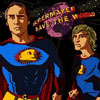 A collaborative project between these two underground heroes of electronic dance music had the potential to take the best elements of both producers' skill sets and make one of the most powerful, essential albums of 2007. Instead of saving the world as the goofy title boasts, the abortive album represents exactly what happens when egocentric hype overtakes substance.
A collaborative project between these two underground heroes of electronic dance music had the potential to take the best elements of both producers' skill sets and make one of the most powerful, essential albums of 2007. Instead of saving the world as the goofy title boasts, the abortive album represents exactly what happens when egocentric hype overtakes substance.
Both Michael Mayer and Aksel Schaufler know how to write good—even great—albums. Touch, Mayer's 2004 full-length, offered some lush productions that hinted at Kompakt's consecutive shift to maximal techno and neo-trance. Schaufler's Superpitcher project achieved international critical acclaim and superstar DJ status with his definitive schaffel-house album Here Comes Love earlier that year. With such astronomical expectations surrounding this new release, their first album as the unimaginatively dubbed SuperMayer, perhaps I should have anticipated the disastrous results.
From the very start, SuperMayer Save the World instills such dread that it suggests the aural catastrophe that follows. Glib introduction "Hey!" leads into "The Art of Letting Go," a DFA-esque bit of insipid dance rock with cut-and-paste funk so apparently formulaic and sequenced that it immediately presents the guys as either well-meaning imposters or lousy comedians. Failures such as "The Lonesome King" and the unbearably kitschy "Cocktails For Two" endeavor to maneuver the downtempo quandary, the former being particularly unlistenable. Even the proper dance tracks consistently miss the mark when held against the potent discographies of Mayer and Schaufler. The pointless "Planet of the Sick" utilizes repetitive old school rave stabs and effected, layered vocals that manifestly lack the melancholic cool of Superpitcher's "People" or "Even Angels." Mired in vapidity, "Two Of Us," released as an advance single, necessitates such an immense amount of patience to sit through that it seems implausible that one would care to actually dance to it.
Quite possibly the worst album I've heard all year, SuperMayer Save the World requires more than just an open mind; it entails a superhuman ability to withstand vainglorious artistic excess. It should be noted that Mayer runs the Kompakt label, which seems to be the only logical reason why this godforsaken self-indulgent dreck was actually released instead of incinerated. I have a hard time accepting that should this have come to his attention in the mail that it would have been given even a fraction of his time. If Mayer and Schaufler ever expect to return to past glories in the face of such masturbatory shark-jumping, this had best mark the end of their days as a costumed crime-fighting / production duo.
samples:
Read More
- Administrator
- Albums and Singles
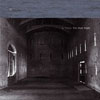 Those recordings that can successfully create visual atmosphere as well as an audio one are rare, but here is one that conveys, through field recordings, vintage electronics, and digital processing, a sense of cold and isolation, yet familiarity at the same time.
Those recordings that can successfully create visual atmosphere as well as an audio one are rare, but here is one that conveys, through field recordings, vintage electronics, and digital processing, a sense of cold and isolation, yet familiarity at the same time.
Though Nilsen utilizes field recordings from a variety of "cold" places (Sweden, Iceland, and the UK), it is never a crutch to fill in gaps in the sound. Instead, it is another pale shade in his sonic pallet, alongside vintage microphones, early analog synths, and modern DSP tools, that constructs a thick painting of frigid landscapes that still manage to ooze a natural warmth. The expansive field recordings that open the disc seamlessly segue into a processed, edited form that coalesce with the high pitched tones, all icy and glacier. Soft tones and melodies mix with a heavy, thick organ sound like the foghorn of a ship far off in the distance.
Other tracks revel in bizarre synthetic textures, the vinyl surface noise like crackles of "Icing Station" and the strange organic rattles of "Finisterre" are both some unknown combination of classic technology with modern processing, and the field recordings are among the few that actually give some sense of life in the barren cold: birds chirping and singing songs within the noisier elements.
Elements of noise, not in the harsh, punishing sense, float to the surface in "Black Light" and "Viking North." The noise sounds not as if it is coming from a distortion pedal, but more the product of the old tape equipment used being pushed beyond its limits. It is a very unique analog form of clipping that sets the noiser elements apart from the more lazy practitioners. Its appearance in "Black Light" is especially effective, as it is the apocalyptic climax to a sprawling piece of bleak, dark ambience with some subtle percussive elements buried deep the misty mix.
The Short Night, despite its singular title, is more of a collection of times and places frozen in space. Each of the tracks are entities unto themselves, and placed together form an excursion into the dark, frigid, and desolate, yet still maintaining a core of warmth and humanity. Unsurprisingly, BJ Nilsen and Touch have produced yet another winner.
samples:
Read More
- Administrator
- Albums and Singles
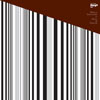 Leave it to Editions Mego to release something that is so unclearly either random electronic improvisations or a highly structured piece of experimentation. But whatever it is, Altars of Science is a captivating piece of computer wizardry that is surely even more fascinating in the included 5.1 surround sound mix.
Leave it to Editions Mego to release something that is so unclearly either random electronic improvisations or a highly structured piece of experimentation. But whatever it is, Altars of Science is a captivating piece of computer wizardry that is surely even more fascinating in the included 5.1 surround sound mix.
I must specify before the review that, although this release is packaged as a dual disc, containing the stereo mix of the piece on one side, and a 5.1 DVD compatible surround sound mix on the other, that my copy was only of the stereo mix, so I cannot completely speak for how the surround portion is. However, given the layering and disorienting phasing and panning of channels in the stereo version, I can only imagine the surround mix is even more fascinating if you have the equipment to fully enjoy it.
Altars of Science is a single piece of computer generated chaos, split across eight individual tracks, indexed for ease of listening. The track dives in with the electronic noise, buzzing, distortion, sharp piercing tones, air raid sirens, all things that make for uneasy listening. There is no gentle introduction to science, just a quick dive into the mechanization. The piece begins to calm, if only somewhat, by focusing more in swells and pulses of noise, akin to cars racing by on a freeway, rendered via an old Atari video game. Glitch type outbursts are unexpected and a bit shocking at times, punctuating the mix with even more volume and force. Then, like an unprepared spacecraft re-entering orbit, the sounds begin to come apart, like pieces flying off and burning in the atmosphere, represented through stutters and digital time stretching.
Later, the panning and shifting of the computer-based noise is like a swarm of insects, their tiny wings amplified to defining volumes, coming together to destroy an old mainframe computer a la the kind in Wargames, all flashy lights and meaningless bleeps. The buzzes mix with the dying beeps of the machinery, a bit of nature triumphing over science. The culmination of the disc is a final bit of minimalism, buried clicks and scratches, some stuttering, much more mellow and less aggressive than the previous parts of the work, the calm reflection after the previous storm.
Schmickler's Altars of Science has enough harshness and chaos to appeal to fans of harsh realms despite being a work of electronic composition. Although he has previously worked in more conventional and pop-like genres, this is purely experimental. It is hard to say whether this is one man improvising with his laptop, or something that was planned, programmed and scored beforehand. In the end, it really doesn't matter worth a damn, because the final result is exemplary.
samples:
Read More
- Administrator
- Albums and Singles
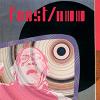 An entirely logical and almost mythical collaboration, this joining of the two greatest studio bands in the history of audio recording has arrived with surprisingly little hype or fanfare. Undeservedly so as it is a thoroughly enjoyable album, albeit with less reinventing the wheel (or inventing some new shape to replace the wheel) than is expected from a pair of groups that are both known for their adventures in the studio.
An entirely logical and almost mythical collaboration, this joining of the two greatest studio bands in the history of audio recording has arrived with surprisingly little hype or fanfare. Undeservedly so as it is a thoroughly enjoyable album, albeit with less reinventing the wheel (or inventing some new shape to replace the wheel) than is expected from a pair of groups that are both known for their adventures in the studio.
Considering the massive influence Faust have had on Nurse With Wound (with Stapleton as a young man famously travelling to the group's headquarters at Wumme only to find Faust were off on tour), it is nearly asking for either an anticlimax or a masterpiece yet it is neither. Yes, there are moments of absolute sonic majesty; the hypnotic, motorik rhythms of "Lass Mich" being blended into smoky ambiences is a stunning start to the album. This was the kind of magic I was hoping for. Yet from here on the album never returns to the sense of urgency and power of the opening song. This is not a problem or a major criticism but after getting so pumped and then left to stagger through the rest of the album wondering "Where has all the muscle gone?" is a bewildering experience. However, after a few listens I settled back in and the other three tracks reveal their own charming characters.
There are times when the music is unmistakably Stapleton and Potter—the time stretched vocals and ethereal drones of the title track being obvious hallmarks of Nurse With Wound—but it would be fallacious to suggest that they are the main drive behind the sound. Faust (in this case consisting of Jean-Herve Peron, Zappi Diermaier and Amaury Cambuzat) bring an awful lot to the table, some of the material here sounds like it could have come from the classic recording sessions at Wumme, the band sounding as vibrant now as in their youth. Diermaier's percussion (when it is not obscured under layers of post-production transformations) is full of raw energy but is as precise as a surgeon. Peron's bass on "It Will Take Time" is a simple two-note refrain but resonates like the hull of a ship hit with a very large hammer.
The symbiosis between the two groups comes naturally, although with all the studio trickery it is hard to tell where one band begins and the other ends. However, the studio trickery on offer is a bit old hat for anyone who is familiar with either group's repertoire. Granted it all sounds brilliant but at times I feel like there should be some sonic epiphany that lives up to the legend of both sets of artists. That being said, any Nurse With Wound fans who have not ventured out into the world of Faust should be inspired by this to go out and explore the jaw dropping back catalogue amassed by the group. Equally, I can only hope that curious Faust fans will pick up on Steven Stapleton's work on the strength of Disconnected and see where Faust might have gone if they did not lose their access to Polydor's generous chequebook. Of course, fans of both will probably spend hours wondering where to shelve the album.
Disconnected may not be a Faust Tapes or a Soliloquy for Lilith for the 21st century but at the very least it answers a big "what if" question. Its best moments shine brightly and at worst it is not a million miles away from some of Nurse With Wound's more recent output (and really that is not a bad place to be at all). Hopefully this will mark just the beginning of a long lasting working relationship between the various parties, more live shows and further studio experiments are, needless to say, welcome.
samples:
Read More
- Administrator
- Albums and Singles
 Only a year and a half after their debut release, mwvm (aka Michael Walton) has already entered and settled into a much colder territory. Taking a step forward, Rotations moves its ten tracks on a single flowing journey through shivering layers of guitar and fx coatings. While it may share elements with post rock, isolationism and ambient musics, this is definitely of itself. Heightening this cold atmosphere, the bleached out Saturn's rings-style artwork is the perfect visual accompaniment to the excursion.
Only a year and a half after their debut release, mwvm (aka Michael Walton) has already entered and settled into a much colder territory. Taking a step forward, Rotations moves its ten tracks on a single flowing journey through shivering layers of guitar and fx coatings. While it may share elements with post rock, isolationism and ambient musics, this is definitely of itself. Heightening this cold atmosphere, the bleached out Saturn's rings-style artwork is the perfect visual accompaniment to the excursion.
The majority of the tracks here favor the abstract over the relaxing guitar-gone-ambient style of his peers. This album stands out as a panacea to the remaining dependence on rock that even the far left of post-rock still retains. It's only the opening "Context. Where?" where memory-tugging melodies and brushstrokes of pedal steel like playing come to the fore. The rise and lull of notes, and their progressive coming together, sees guitar lines floating in alternating layers like varicoloured liquids that won't mix.
Circling itself, "Oratory Clout" adds field recordings and dim electronics to layers of ringing, shivers running alongside and through the notes. There are dark movements across the record, whistling metallic glides and recurring vibrations of satellite paths. The lost horn call sounds of "Negative Pole" are trapped in the air, cold basilica echoes running through Rotations. This records perfect moment though appears on the drowsily titled "Sleepy Crayfish," avoiding guitar glories it goes instead for subtle currents. Gorgeously (and surprisingly, for such a frozen release) capturing a warm underwater world without resorting to anything other than lush emissions of sound, this is mwvm inspiring the rest of the crowd to keep in the gentlest possible way.
samples:
Read More
- Administrator
- Albums and Singles
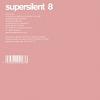 The latest bulletin from the far north's most mighty improvisers is nothing short of staggering. From start to finish it is a bewildering and bewitching journey; the familiar trappings of rock and jazz being reprogrammed into a chimera of musical styles in a strange, shifting landscape. It is the sound of absolute freedom, of musicians completely breaking away from the constraints laid upon them by those who have gone before.
The latest bulletin from the far north's most mighty improvisers is nothing short of staggering. From start to finish it is a bewildering and bewitching journey; the familiar trappings of rock and jazz being reprogrammed into a chimera of musical styles in a strange, shifting landscape. It is the sound of absolute freedom, of musicians completely breaking away from the constraints laid upon them by those who have gone before.
A word that is not unfamiliar to those who have encountered Supersilent is "intense." If this was a one word review, it would be just that. However, blessed with a relatively unlimited word count I can go into the required detail. Anyone familiar with Supersilent will know that the idea of intensity is always key to their power. What form this intensity takes depends on their mood when they walk into the studio, for 8 it is an almost violent, heavy vibe that rumbles through the album. The queasy synth and lurching rhythms that opens the album brings to mind the nauseous live jams of Throbbing Gristle. From the second it starts it is obvious that the world's favourite Norwegians are back and they are taking no prisoners and leaving no survivors.
The pace is then taken down a few measures for about half the album, the jazzier side of Supersilent comes to the fore but even then, jazz is just one word that fails to do justice to this band. In saying that, there is a serious Miles Davis air about "8.4" with its cool drums and trumpet center. To class this music as jazz (or rock or improvisation or experimental) does not convey in even the slightest what Supersilent are like on their best days (on their worst days it is possible to use stronger words but that is not the focus here). The best I can do is go back to the idea of intensity, gripping the moment with both hands and freefalling into oblivion, recording the sounds all the while. The white hot freakout of "8.7" captures this feeling most effectively; it vomits out of the stereo like a million Wolf Eyes hungry for your hearing.
8 may be intense and even punishing but most importantly it is a splendid album, replete with mind-blowing improvisations that quite honestly left me breathless the first time I sat down and listened to it. Each listen opens up a new view on the music, it is possible to listen to a particular track over and over and pick up nuances that were previously missed. Of course, anyone who has heard any of Supersilent's previous releases will know this already. 8 is as good as anything from the group's back catalogue and better than words can accurately convey.
samples:
Read More
- Administrator
- Albums and Singles
 As a whole, this album is a dark journey through dense fog, mist, and pure bleakness: a disorienting pastiche of recognizable live instruments and pure electronic and sound manipulation. While it makes for some interesting textures, unfortunately the overall dynamics of the tracks are lacking.
As a whole, this album is a dark journey through dense fog, mist, and pure bleakness: a disorienting pastiche of recognizable live instruments and pure electronic and sound manipulation. While it makes for some interesting textures, unfortunately the overall dynamics of the tracks are lacking.
The first track (all are untitled) establishes the mood for the remainder: all minor chords; bizarre rattles; and slow, sinister droning strings. It is the audio equivalent of hovering in a thick mist where nothing is visible in any direction, yet there is obviously something there. The organic strings are a recurring motif throughout, appearing as an obvious cello in some tracks, or simply a slow, dense wave of tension later on.
Found sounds play a role as well: dripping water, indecipherable fragments of human voice, and the hum of a guitar amplifier run through distortion to no longer be ignorable, but prominent, and matched with an orchestral ambience in the longest, fourth track on the album. There is a definite density and thickness that can be heard in the mix of all tracks, layer upon layer of organic and synthetic instrumentation that beg for focused listening, which is where the problem arises.
There is nothing patently wrong with the album, not at all. In fact, the tracks reflect the album's overarching concept of landscapes. Like the terrain, they sit there, vast, but unchanging. From piece to piece they differ, but they don't have much individual direction: they're too complex to hinge on pure minimalism, yet structurally too repetitive to build much in the way of tension. Because of that, listening closely causes the tracks to start to slip into the background, which is unfortunate because there is a lot of interesting stuff going on here, the tracks just need more development and inertia to make them more engaging. As it stands now, the pieces just blend into the terrain they are intended to mimic, instead of standing out in uniqueness.
Most interesting is the fact that the shortest track on the disc—the third one that clocks in at about three and a half minutes—shows the most variation and development, with intertwining guitar and vibraphone sounds over drone and steady electronic pulse. Compared to the rest, it is very dynamic and the most fascinating here.
In small doses, as in by a track at at time, this is a great disc. However, it too easily becomes background sound and makes close, intensive listening difficult. Rather than relying on the tension built up at the immediate start of the tracks, Stimulus would do well to integrate more dynamic variation and structure into the individual works, because keeping the listener's attention that way could shift the album from simply being "interesting" to being far more "compelling."
samples:
Read More

